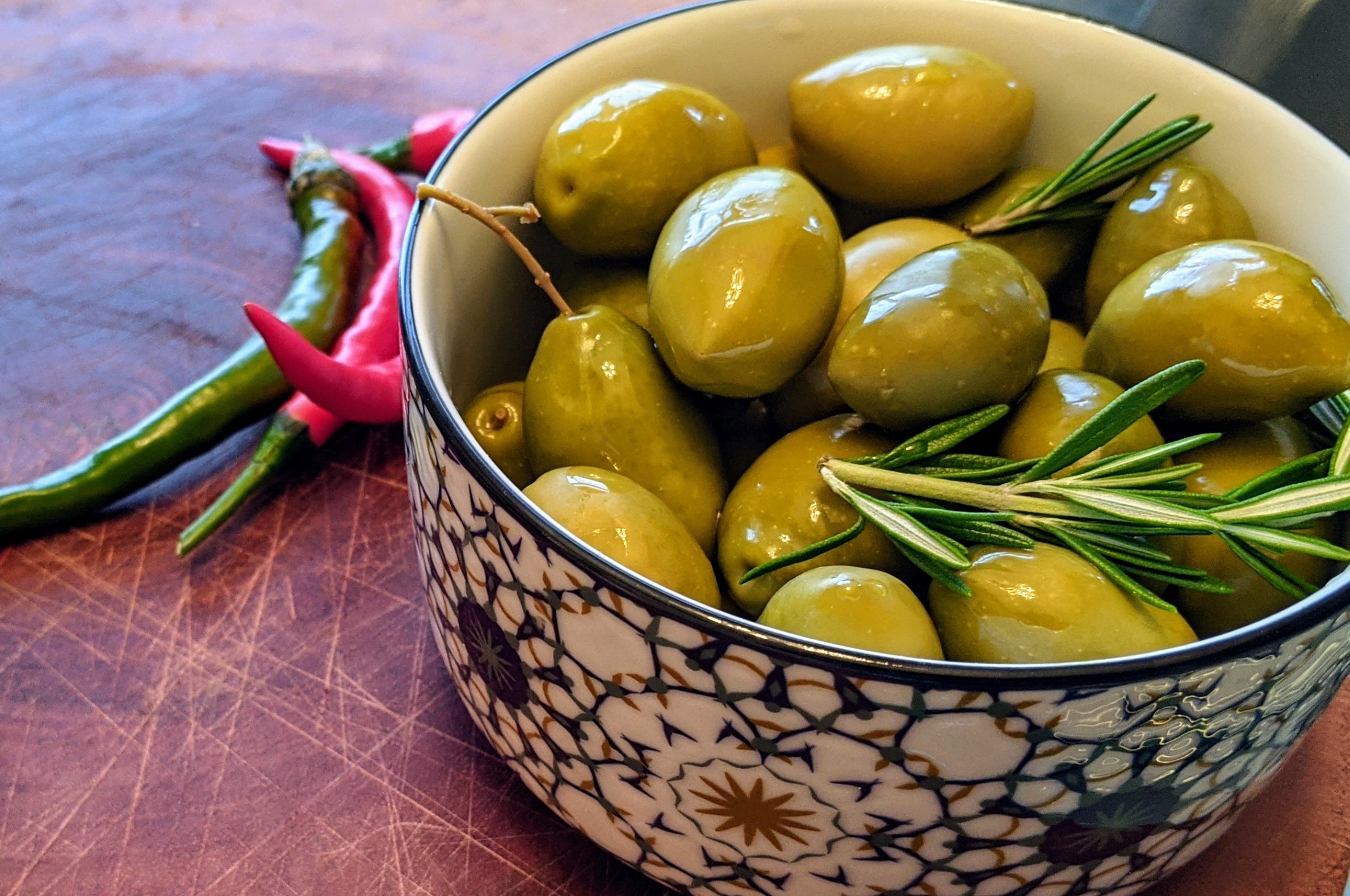
Olives are small but mighty fruits packed with nutrients and antioxidants. They’re a staple in the Mediterranean diet and have been linked to various health benefits.
What are olives?
Olives are the fruit of the olive tree (Olea europaea), native to the Mediterranean region. They belong to a group of fruits called drupes, or stone fruits, which also include mangoes, cherries, and peaches. Depending on the variety and ripeness, olives are typically harvested when green or black. They are then cured and processed to remove their bitter taste before being consumed.
Nutrition facts
Olives are a good source of healthy fats, antioxidants, vitamins and minerals. Here’s a look at the nutrition facts for 100 grams of olives:
Calories: 116
Fat: 11 grams
Saturated fat: 2.3 grams
Monounsaturated fat: 7.7 grams
Polyunsaturated fat: 0.6 grams
Protein: 0.8 grams
Carbohydrates: 6 grams
Fiber: 1.6 grams
Sugar: 0 grams
Vitamin E: 1.65 mg (11% DV)
Iron: 3.3 mg (18% DV)
Copper: 0.25 mg (13% DV)
Calcium: 88 mg (9% DV)
Sodium: 1500 mg (63% DV)
Health benefits
Olives are rich in antioxidants, including oleuropein, hydroxytyrosol, and tyrosol. These compounds have been linked to a variety of health benefits, including:
Heart health: Olives may help improve heart health by reducing blood pressure, cholesterol levels, and inflammation.
Cancer prevention: Some studies suggest that olives may help protect against certain types of cancer, such as breast and colon cancer.
Bone health: Olives may help improve bone health by increasing bone density and reducing the risk of osteoporosis.
Brain health: Olives may help protect against age-related cognitive decline and Alzheimer’s disease.
Interesting facts
Olives are one of the oldest cultivated fruits in the world. Olive trees have been grown for over 6,000 years.
There are over 800 different varieties of olives.
Olives are a symbol of peace and prosperity. The olive branch is a traditional symbol of peace.
Olives are a good source of vitamin E, which is essential for healthy skin and hair.
Olives are a good source of iron, which is vital for carrying oxygen in the blood.
How to eat olives
Olives can be enjoyed in a variety of ways. They can be eaten whole as a snack, added to salads or pizzas, or used in tapenades and other dips. Olive oil, which is made from olives, is also a healthy and versatile cooking oil.
Potential downsides
Olives are generally safe to eat, but there are a few potential downsides to be aware of. Olives are high in sodium, so people watching their sodium intake should consume them in moderation. Olives can also be high in calories, so it is important to factor them into your daily calorie intake.
The bottom line
Olives are a delicious and nutritious fruit that can be enjoyed as part of a healthy diet. They are a good source of antioxidants, healthy fats, and vitamins and minerals. Olives have been linked to various health benefits, including improved heart health, cancer prevention, and bone health. However, olives are high in sodium and calories, so they should be consumed in moderation.
Reference links:
Note: This article is for informational purposes only and should not replace professional medical advise.
